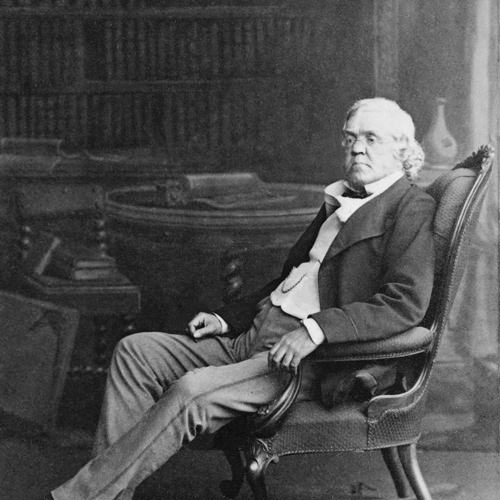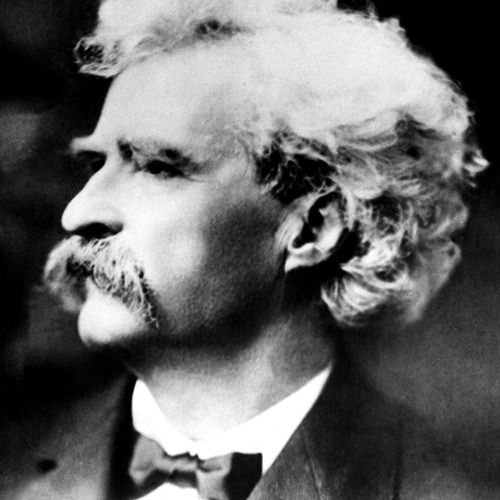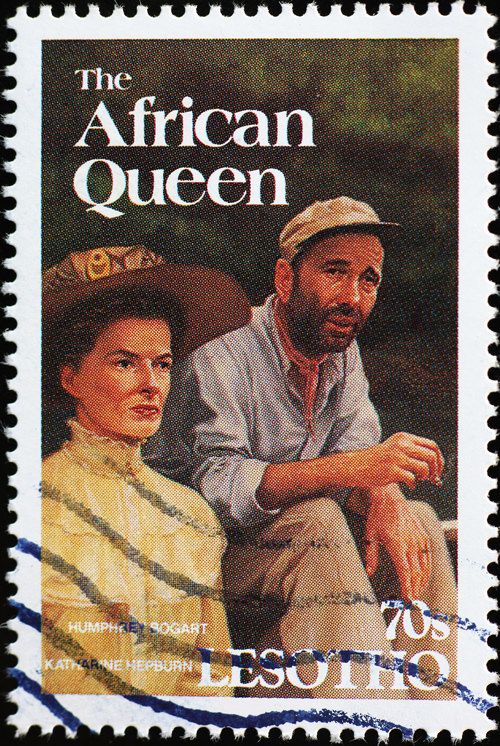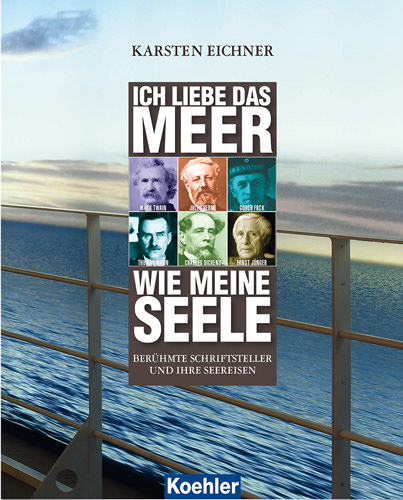Storytellers at sea

Cruise correspondents
The British shipping company P&O Cruises is credited with inventing the concept of cruises. Set with the challenge of trying to persuade people to take a voyage simply for pleasure, P&O came up with a cunning solution: in 1844, they gave the journalist and novelist William Makepeace Thackeray a free ticket and invited him to come on board and gather impressions for a book. He was also asked to entertain the female passengers. Thackeray did not spend the entire cruise on one ship, as he was forced the change several times in order to get to Athens, Jaffa and the Egyptian pyramids. And it wasn’t all smooth sailing, as the rough sea didn’t agree with him and on one leg of the journey he was distinctly discombobulated by the “un-British” behaviour of some pilgrims, not to mention the foreign customs and habits he was forced to endure on land. His travel report, published under the nom-de-plume Michael Angelo Titmarsh, was perhaps not as glowing as it could have been, but it did generate enough income for him to write “Vanity Fair”, one of the all-time classic British novels.

Sailing with Huckleberry Finn’s father
Mark Twain was another very early cruise passenger. In 1867, he went on board the Quaker City as a correspondent, explored the Mediterranean – and observed the quirks of his fellow passengers. He soon noticed the habit, particularly among seafaring novices, to attempt to blend in by adopting an elaborate maritime vernacular. Twain himself was familiar with ships, having worked as a pilot on the Mississippi before becoming an author. Not that this prepared him for what happened as his ship entered the port of Athens: due to quarantine rules, the passengers were ordered to forgo their long-awaited trip ashore. With his sights firmly set on the Acropolis, Twain did not want to miss Athens and so, with a few co-conspirators, covertly slipped off this ship at midnight… what happens next is described in his travelogue, “The Innocents Abroad” –perfect for reading in a deckchair!

Logbooks
Were they to return, Thackeray and Mark Twain might notice some slight changes to on-board entertainment since they set off on a cruise. As well as glittering stage shows, magic performances and acrobatics, book readings and writing workshops have become very popular. This also means that the number of writers at sea has shot up, which makes perfect sense as it is the ideal opportunity to combine travel and work. In fact, cruises have always been a source of inspiration, from as early as Agatha Christie’s “Death on the Nile”, a classic murder mystery set on a river cruise down the Nile that is thrilling today as it was when it was first published in 1937. Acclaimed writer Michael Ondaatje tells the story of a young boy who sails the Suez Canal bound for Europe in “The Cat’s Table”, the name given to the dining table furthest from the captain’s. A writer who took a cruise and didn’t like it was David Foster Wallace. In “A Supposedly Fun Thing I’ll Never Do Again”, he describes his one week aboard a cruise ship in an essay packed with malicious observations.

Prefer to watch a movie instead of turning pages?
The sea has always been a rich source of inspiration for film directors. From nail-biting thriller to tearjerker or comedy: these seven movie highlights will get you in the mood for a cruise – or mark the fitting end to a memorable journey.
Mutiny on the Bounty (1962) – a classic adventure movie starring the incomparable Marlon Brando
Pirates of the Caribbean (2003) – An action-packed romp with Johnny Depp alias Capt. Jack Sparrow
African Queen (1951) – Romance and adventure with Katherine Hepburn and Humphrey Bogart
Murder Ahoy! (1964) – Maritime murder based on an Agatha Christie story with the sublime Margaret Rutherford as Miss Marple
Gentlemen Prefer Blondes (1953) – Classic comedy with Marilyn Monroe and Jane Russell
An Affair to Remember (1957) – A romance starring Hollywood legends Cary Grant, Deborah Kerr and Richard Denning
Hotel Transylvania 3 – Summer Vacation (2018) – Cruise fun for youngsters with lovable monsters

Ich liebe das Meer wie meine Seele
Der Buchtipp zum Thema
Eine kleine literarische Schatzkiste für Kreuzfahrer und Landratten: Ich liebe das Meer wie meine Seele von Karsten Eichner nimmt seine Leser mit auf die Reisen großer Literaten vom frühen 19. bis ins beginnende 21. Jahrhundert und damit in die Epoche, in der die Schiffsreise in ihrer heutigen Form entstand. Viele Schriftsteller gingen für Wochen oder Monate an Bord: Sie fuhren in den Orient oder um die ganze Welt, jagten Robben in der Arktis oder seltene Käfer in Asien, erkundeten Fjorde und Weltstädte. Sie trotzten Stürmen, besuchten Sehnsuchtsorte, erfüllten sich Südseeträume oder brachen auf zu neuen Ufern – und verarbeiteten ihre Seereisen literarisch. Gorch Fock und Robert Louis Stevenson, Thomas Mann und Jean Cocteau, Mark Twain oder der „rasende Reporter“ Egon Erwin Kisch: Sie zeichneten ihre Erlebnisse spannend, humorvoll und mitunter höchst akribisch auf, und Autor Dr. Karsten Eichner lässt seine Leser daran teilhaben. Der Historiker und Journalist und beschäftigt sich seit Jahren mit der Geschichte der Seefahrt. Er hat zahlreiche Bücher und Beiträge (z.B. in mare und an Bord) veröffentlicht und hält Vorträge und Lesungen auf Kreuzfahrtschiffen.
Karsten Eichner:
Ich liebe das Meer wie meine Seele
Berühmte Schriftsteller und ihre Seereisen
(Koehlers im Maximilian-Verlag)

All Images © shutterstock




